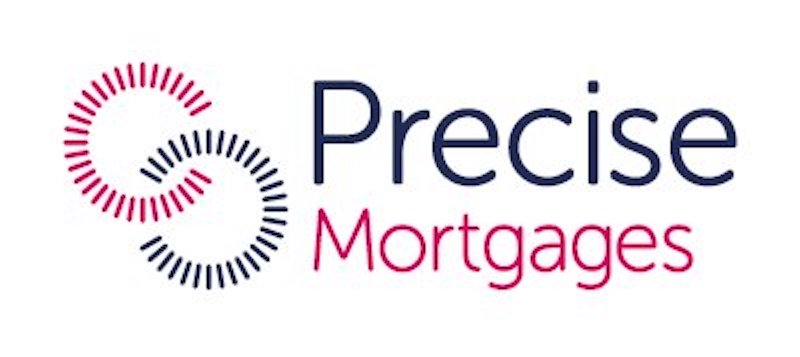Get a Mortgage With an IVA
We have assisted 1000’s of customers with poor credit. We excel at it! Request FREE advice and prices with no strings attached. No initial credit check.
Free expert service
Rated 5 Star on Google
No impact to credit score
We're Bad Credit Mortgage specialists with access to the whole of the market!
Have you filed for bankruptcy, entered into a debt management plan, received a CCJ, or gone into default in the past 6 years? You shouldn’t be concerned. We have extensive experience in the mortgage sector and often collaborate with bad credit mortgage lenders who focus on helping borrowers like you.






Can you get a mortgage with an IVA?
Yes, it is certainly possible.
An Individual Voluntary Arrangement (IVA) can assist you in keeping up with your debt repayment, but it may still have an effect on your ability to obtain a mortgage. You might believe that having an IVA on your credit report precludes you from ever qualifying for a mortgage. However, there are lenders willing to take into account IVAs, so you don’t have to submit yourself to renting indefinitely. They will evaluate a variety of elements, including:
- The amount of your contribution and your current income
- Any additional bills you owe at the moment
Call us at 0330 043 1143 if you’re prepared to take the next step.
What Is an IVA?
An IVA is a formally enforceable arrangement between a debtor and a lender to repay debts over a certain period of time. When someone has significant debt and doesn’t want to file for bankruptcy as a last alternative to manage their bills, an IVA may be able to help.
The agreement must be drafted by a licensed professional, sometimes known as an insolvency practitioner. When filing for an IVA, you should keep in mind that they will charge for this service.
For a certain amount of time, often up to five or six years, you will make an agreed-upon monthly payment. If you have many debtors, the insolvency practitioner will divide this payment among them. You will be obliged to contribute any newfound wealth—such as an inheritance—to your IVA. If you have assets like a private pension, it would be wise to take those into account when filing for an IVA as they can also be used to pay your IVA.

For what length of time would an IVA adversely affect my credit score?
Any default, including an IVA, will remain on your credit report for six years. Although your credit may take a hit due to the IVA, it doesn’t imply you can’t receive a mortgage in the future.
However, just because a mortgage lender looks at your credit score is no guarantee that you will acquire a loan. If you work with one of our reliable mortgage brokers, you should be able to choose a plan that is suitable for your financial situation.
4 Reasons why to use us?
We believe that everyone deserves the opportunity to own their own property and recover from an adverse credit history. We put you in touch with a specialist mortgage advisor who has access to the whole of the UK mortgage market and will help you secure the best bad credit mortgage deals for you in your current circumstances.
Quick quote calculator
Our approach - and how we do it
Get in touch!
We love speaking with our clients. Give us a call, fill in one of our contact forms or chat with us on 0330 043 1143 right away!

We’ll introduce you for free
We’ll put you in touch with one of our qualified mortgage advisors who will discuss your options and answer your questions.

... and relax!
We’ll put you in touch with one of our qualified mortgage advisors who will discuss your options and answer your questions.
See what others think ...

Steven Brunning
Aidan and Kayleigh were absolutely brilliant. They were very pro-active throughout and gave us confidence that they were identifying the most appropriate products on the market for our needs! We felt very reassured and are grateful for them helping the transaction to run as smoothly as possible.
Zara Akhtar
From the very start Michael, who I initially spoke with was the extremely helpful and professional. I was struggling to find a lender due to my personal circumstances. Michael was very open and honest with me and actually managed to find a lender who would consider my circumstances. This is something other brokers were unable to do!
I started my mortgage journey thinking I could never get a mortgage, well if I did I would be a long time due to a few mistakes I made back when I was a student. I got speaking to Luke Grosse. After months of searching things couldn’t of gone smoother on his end, he got me a mortgage offer. Easy to talk to, straight forward, explained everything in detail while being patient. Couldn’t recommend this company and Luke in particular any higher as my experience with them was fantastic. Finally completed on my purchase today and now I am a home owner with my fiancé.
This being our first property purchase, we were very unfamiliar with the how things worked. With the support and help by these two fine ladies, we were able to steer in the right direction. We had constant communication throughout the process and communication was key in these purchase too. I definitely speak highly and recommend others the mortgage advisor as they were always willing to help and support us in any way possible.
Let us find your perfect mortgage.
We have access to a variety of specialised lenders that are willing to take into account anyone who has previously participated in an IVA. In order for you to determine if you want to move forward with looking for a mortgage arrangement, we are delighted to provide you with some initial free advise to get a sense of your existing situation.
Speak to one of our specialists
This applies to all people with bad credit, but it’s especially important if you’ve already been turned down for a mortgage. Prior to resubmitting your application and risking another rejection that may further damage your credit record, speak with one of our expert advisors that specialises in mortgages for those with bad credit. They will be able to evaluate your position and provide you advice on which lenders you should speak with and which you should completely avoid.
Due to their connections, they will also be able to discuss your application with loan representatives and negotiate the finest terms and prices.
It’s also crucial to bear in mind that, should you need to use one, the majority of specialist lenders would require an introduction from a reliable broker.
The brokers in our network have years of experience helping credit-challenged consumers acquire mortgages. If you get in touch with us, we’ll put you in touch with a specialist straight immediately.

Meet our experts
Michael Buckley
Director / Mortgage & Protection Advisor
Aidan Comerford
Sales Manager
Luke Grosse
Mortgage & Protection Advisor
Chris Kenny
Mortgage & Protection Advisor